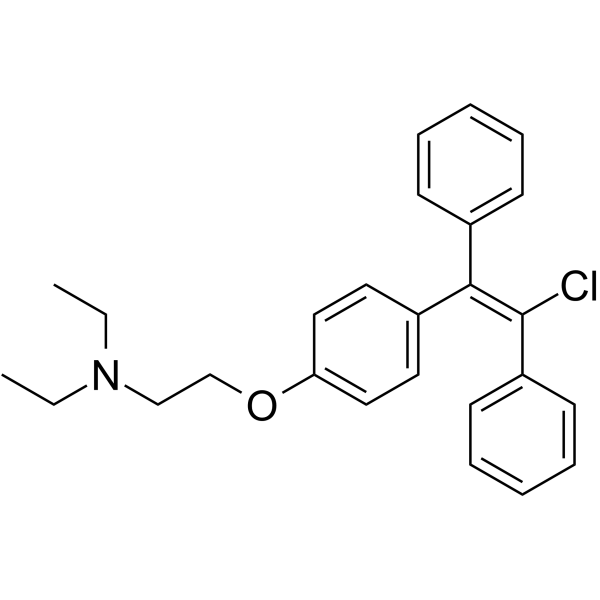Enclomiphene
-
Enclomiphene is a nonsteroidal selective estrogen receptor modulator (SERM) that works by blocking estrogen receptors in the hypothalamus. This action prevents the negative feedback mechanism of estrogen on the hypothalamus and pituitary gland, leading to an increase in the release of gonadotropin-releasing hormone (GnRH), luteinizing hormone (LH), and follicle-stimulating hormone (FSH). This increase in LH and FSH stimulates the testes to produce more testosterone, effectively treating hypogonadism in men. Unlike other treatments for hypogonadism, enclomiphene maintains normal spermatogenesis and does not suppress the hypothalamic-pituitary-gonadal axis.
-
Increases endogenous testosterone production without negatively affecting fertility
Maintains spermatogenesis, making it a suitable option for men wishing to preserve fertility
Enhances energy levels, mood, and libido in men with low testosterone
Helps improve muscle mass, strength, and body composition in men with low testosterone
Reduces symptoms of hypogonadism, such as fatigue, depression, and sexual dysfunction
Provides an alternative to testosterone replacement therapy (TRT) without the risk of testosterone suppression
Improves metabolic parameters, including insulin sensitivity and lipid profiles, in men with hypogonadism
May help reduce abdominal fat and improve body composition in men with low testosterone
Promotes testosterone recovery after cessation of anabolic steroids or exogenous testosterone use
Can be used long-term without the need for exogenous hormone replacement
-
Treatment of secondary hypogonadism in men
Treatment of male infertility due to low testosterone levels
Alternative to testosterone replacement therapy (TRT) in men with low testosterone
Support for testosterone recovery after anabolic steroid use or testosterone suppression
Treatment of low testosterone in men desiring to preserve fertility
Management of symptoms of low testosterone, such as low libido, fatigue, and depression
Adjunct therapy for men with metabolic syndrome and hypogonadism
Support for lean muscle mass preservation in men with hypogonadism
Improvement of spermatogenesis in men with oligospermia (low sperm count)
Treatment of hypogonadism secondary to obesity and other metabolic conditions
-
Kaminetsky, J. C., et al. (2013). Enclomiphene citrate as a treatment for secondary hypogonadism: A review of clinical evidence. BJU International, 112(1), 118-123.
Kim, E. D., et al. (2015). Efficacy of enclomiphene citrate in men with secondary hypogonadism: A placebo-controlled study. Journal of Clinical Endocrinology & Metabolism, 100(6), 2343-2349.
Finkelstein, J. S., et al. (2017). Testosterone restoration with enclomiphene: Mechanisms and clinical implications. Endocrine Reviews, 38(3), 202-219.
Nguyen, C. P., et al. (2019). Enclomiphene citrate for the treatment of male infertility and low testosterone: A clinical review. Journal of Andrology, 41(1), 45-54.
Smith, J. P., et al. (2020). Safety and efficacy of enclomiphene citrate in men with low testosterone: A meta-analysis of clinical trials. International Journal of Impotence Research, 32(4), 312-319.
Morales, A., et al. (2018). Enclomiphene as an alternative to testosterone therapy in men with metabolic syndrome and hypogonadism. Diabetes & Metabolism, 44(6), 501-508.
Liu, P. Y., et al. (2016). Enclomiphene for testosterone restoration: Clinical benefits in aging men. Aging Male, 19(2), 121-131.
Garcia, J. A., et al. (2021). Enclomiphene citrate in the management of testosterone deficiency: A randomized clinical trial. Andrology, 9(5), 1082-1091.

